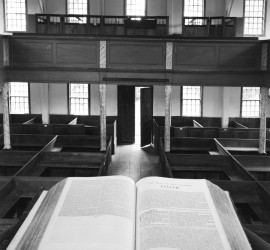One American tabloid recently said this about the Bible:
No television preacher has ever read the Bible. Neither has any evangelical politician. Neither has the pope. Neither have I. And neither have you. At best, we’ve all read a bad translation—a translation of translations of translations of hand-copied copies of copies of copies of copies, and on and on, hundreds of times.
First of all, it’s not true that we’re dealing with “a translation of translations of translations,” as if the original Greek first went into Chinese which went into German which went into Polish and finally we got around to putting it into English. No, we’re able to translate directly from the original Greek and Hebrew, so at worst we’re dealing with a translation, full stop. But what should we say about that last idea, the charge that all we have available to us are “hand-copied copies of copies of copies of copies?”
Copypock. Er, I mean, poppycock. That’s what we should say.
Let’s think for a moment about the question of transmission—that is, can we be confident that the original text of the Bible was transmitted accurately to us through the centuries? As we begin to consider that question, we should just right off the bat acknowledge the gigantic glittering elephant standing here in the room: We don’t have the originals.
Whatever pieces of paper Luke used, or John used, or Paul used to write Luke, John, or Romans have been lost to history, and it’s highly unlikely we will ever find a biblical manuscript about which we can say, “We are 100% certain that this is the original piece of paper on which the author wrote.”
But here’s the thing. Is having The Original Piece of Paperreally the only way we can have any confidence that what we dohave is in fact what was written? Are we forever doomed to saying that we don’t really have any idea what Homer or Plato wrote because we don’t have the pieces of paper on which they wrote The Odysseyor The Republic? Certainly not, and to say so would be ridiculously pedantic. So what about the documents of the Bible? Are we really left simply to give up and admit that all we have are a bunch of useless copies of copies of copies of copies, and that we’ll never have any confidence that what we have is what the authors actually wrote?
Well, no. In fact, even though we don’t have the Bible’s Original Pieces of Paper, we can in fact be highly confident that we know what those original pieces of paper said. Now how can that be?
The key to answering that question lies in the fact that even though we don’t have the originals, we do have thousands of other pieces of paper that contain original-language text from each book of the Bible—about 5,400 of them all told when it comes to the New Testament. These go back to the third, or second, even (perhaps?) to the first century. Some of those pieces of paper contain whole copies of biblical books; others have been destroyed to varying degrees so that all they contain now are just portions of books.

